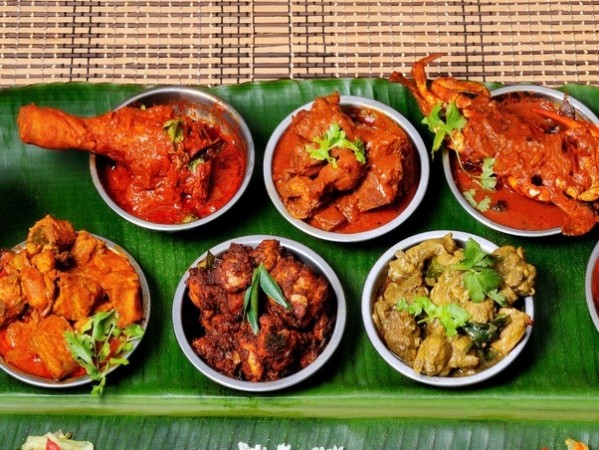
In a world where culinary delights often take center stage, the excessive consumption of non-vegetarian food has become a cause for concern. This article aims to delve deeper into the potential health hazards associated with overindulging in non-vegetarian meals, shedding light on the impact it can have on your overall well-being.
Non-vegetarian dishes are renowned for their rich and robust flavors, making them an irresistible choice for many. The aromatic spices and varied cooking styles contribute to the allure that often leads individuals to overconsume. The sizzling sound of meat on the grill and the enticing aroma wafting through the air can trigger a sensory overload, making it challenging to resist indulging in larger portions.
Cultural practices and traditions play a significant role in shaping dietary preferences. In many societies, non-vegetarian meals are deeply ingrained, creating a cultural bias towards their frequent inclusion in daily diets. Festivals, celebrations, and family gatherings often revolve around elaborate non-vegetarian feasts, reinforcing the idea that these foods are an integral part of social and cultural identity.
Challenging Cardiovascular Health
Consuming excessive non-vegetarian food, particularly red meats, can contribute to elevated cholesterol levels. This, in turn, poses a serious threat to cardiovascular health, increasing the risk of heart diseases. The saturated fats present in red meats can lead to the accumulation of cholesterol in the arteries, creating atherosclerosis and hampering the smooth flow of blood. The heart, burdened by this increased workload, may struggle to maintain optimal functionality.
Strain on the Digestive System
The heavy nature of many non-vegetarian dishes can lead to digestive issues. Overindulgence may result in bloating, indigestion, and discomfort, adversely affecting the overall digestive system. The digestive enzymes are often overtaxed, causing a slowdown in the breakdown of food. This not only hampers nutrient absorption but also creates an environment conducive to the proliferation of harmful bacteria in the gut, potentially leading to gastrointestinal problems.
A Healthier Meat Choice
Choosing lean proteins like poultry and fish over red meats can mitigate some health risks associated with non-vegetarian diets. These options provide essential nutrients without the excessive saturated fats found in certain meats. Poultry, such as chicken and turkey, is not only lower in saturated fats but also rich in essential amino acids, promoting muscle health and overall well-being. Fish, especially fatty fish like salmon and mackerel, is a powerhouse of omega-3 fatty acids, beneficial for heart health.
A Varied Plate
Maintaining a balance between non-vegetarian and vegetarian meals ensures a diverse nutrient intake. Vegetables, fruits, and grains complement the protein derived from non-veg sources, fostering a more well-rounded diet. The vitamins, minerals, and fiber found in plant-based foods contribute to overall health and aid in the efficient digestion of non-vegetarian elements. This balanced approach not only enhances nutritional diversity but also minimizes the potential drawbacks associated with excessive non-veg consumption.
Empowering Individuals
Raising awareness about the potential health risks empowers individuals to make informed choices about their dietary habits. Understanding the consequences allows for a more conscious approach to non-vegetarian consumption. Education regarding the nutritional content of different meats, cooking methods, and portion control can guide individuals in making choices that align with their health goals. By being informed, individuals can take charge of their well-being and navigate the intricate landscape of dietary choices more effectively.
Monitoring Well-being
Periodic health check-ups play a pivotal role in identifying and addressing health issues arising from dietary habits. Regular screenings enable timely intervention, preventing the escalation of potential health risks. Monitoring cholesterol levels, blood pressure, and overall cardiovascular health allows individuals to proactively manage their well-being. A proactive approach to health, coupled with a balanced diet, can significantly reduce the adverse effects associated with excessive non-vegetarian consumption.
In the pursuit of gastronomic pleasure, it's crucial to strike a balance that ensures both enjoyment and well-being. Moderation, informed choices, and a diverse diet are key elements in navigating the complex landscape of dietary preferences. By understanding the potential health hazards of excessive non-veg consumption and incorporating a mindful approach to dietary choices, individuals can savor the delights of non-vegetarian cuisine without compromising their health.
The day of these zodiac signs is going to be very special in work and business, know your horoscope
Today will be something like this for people of these zodiac signs, know your horoscope